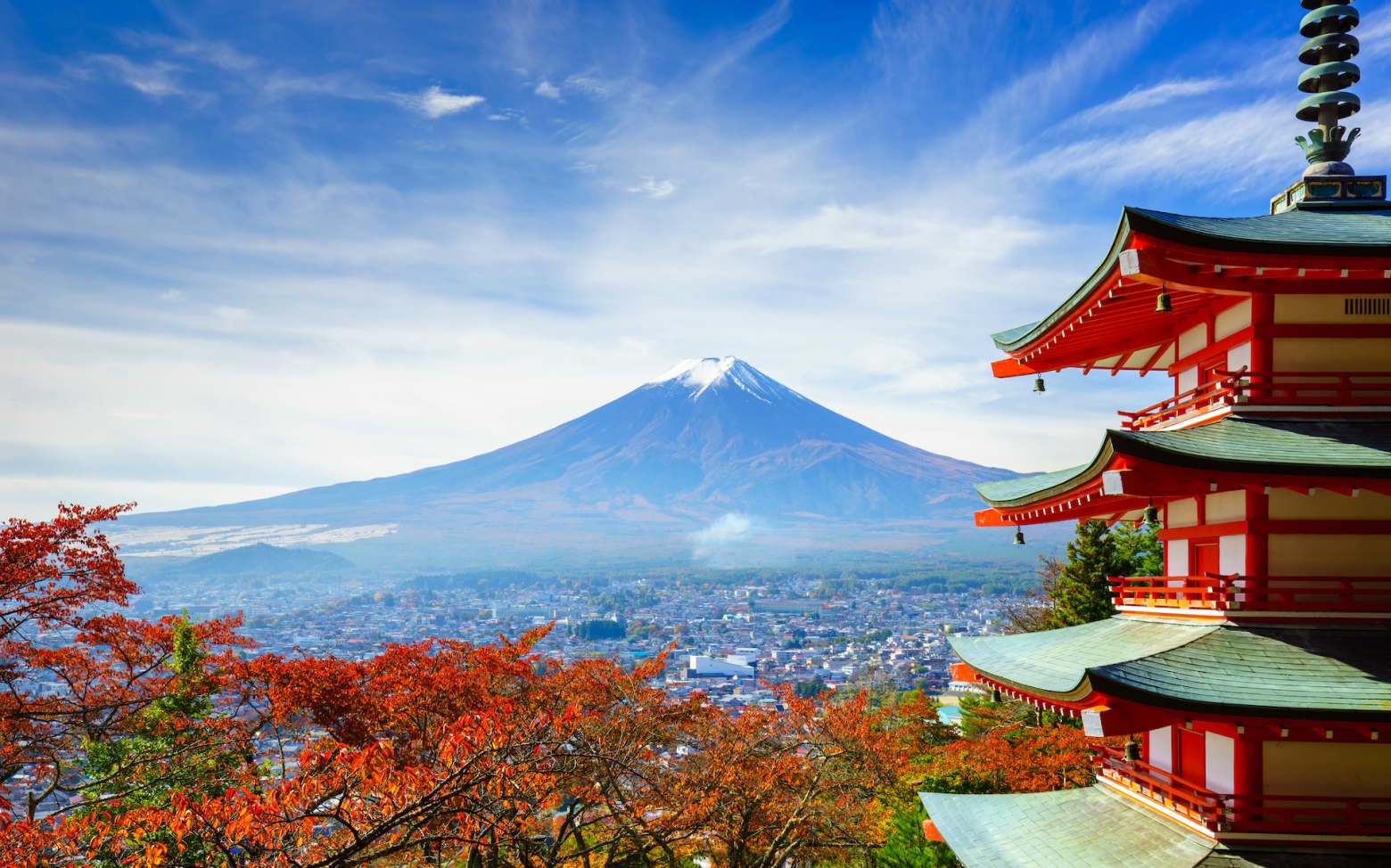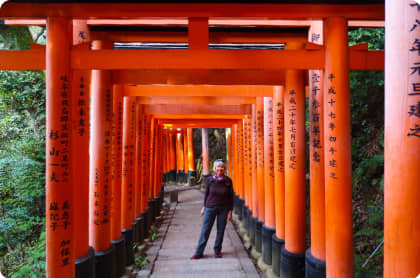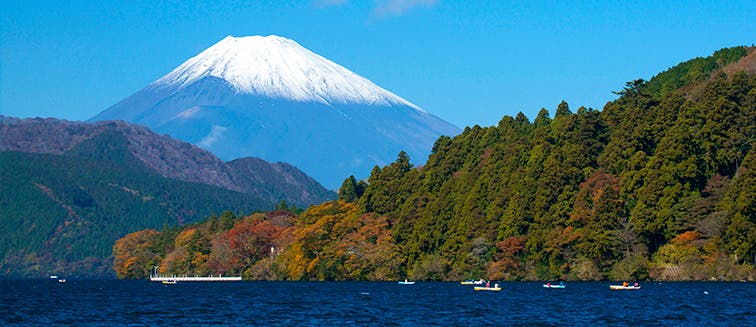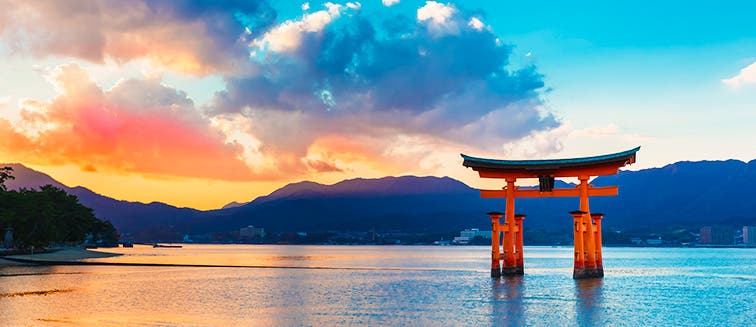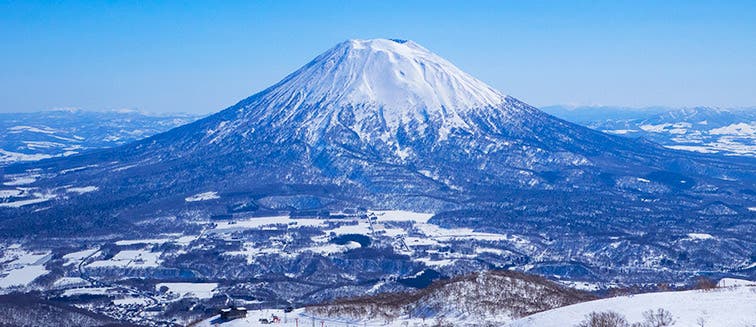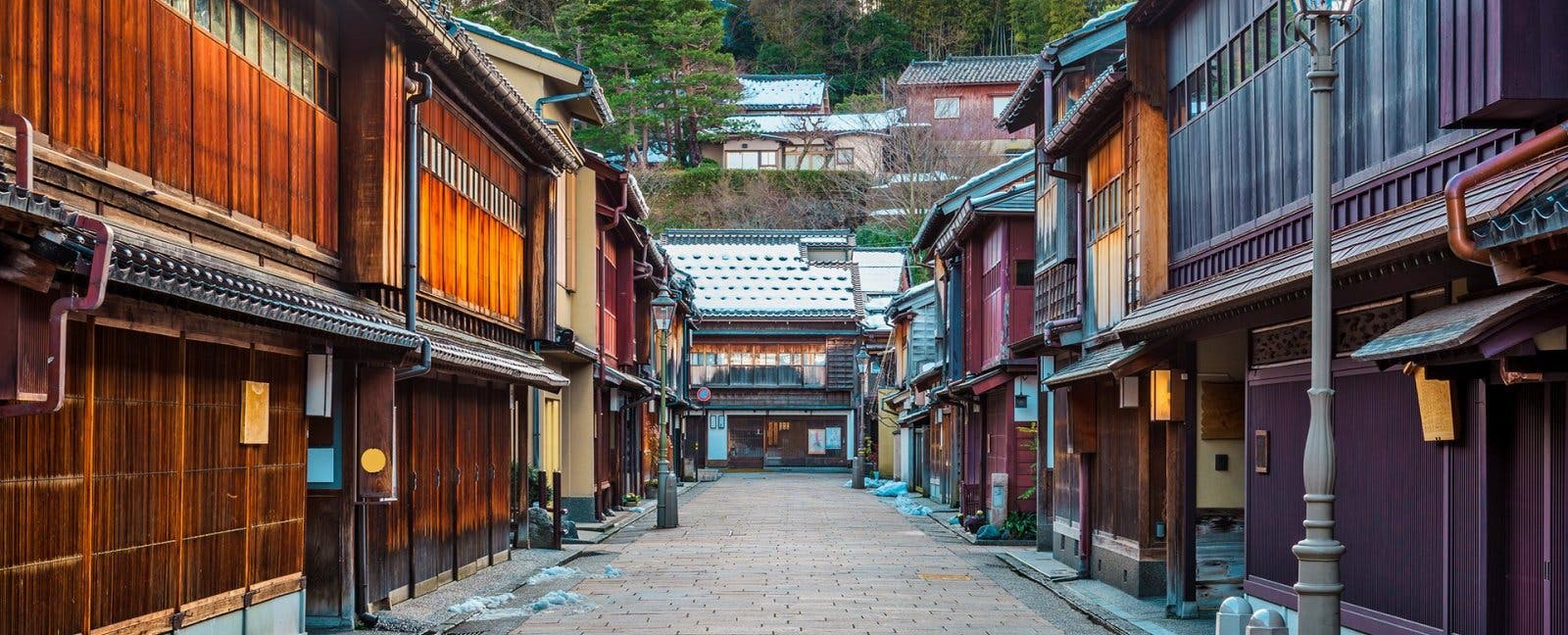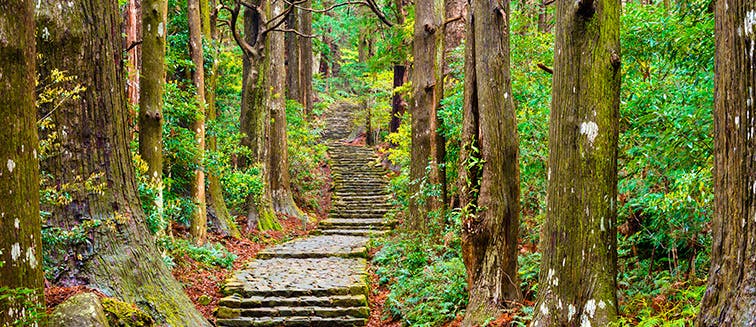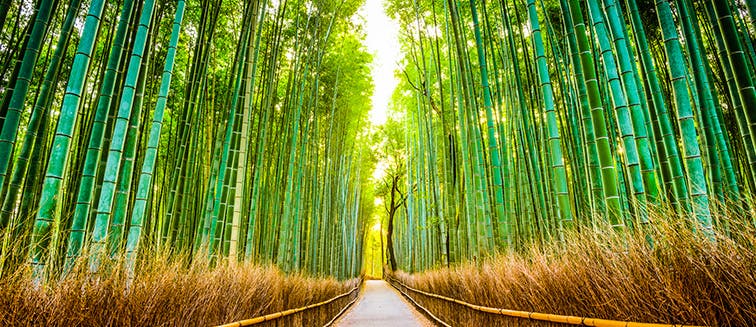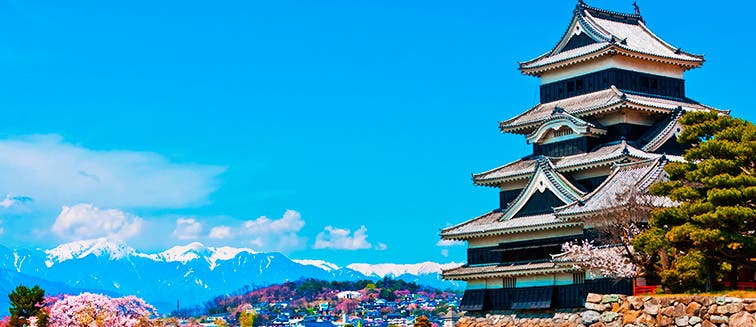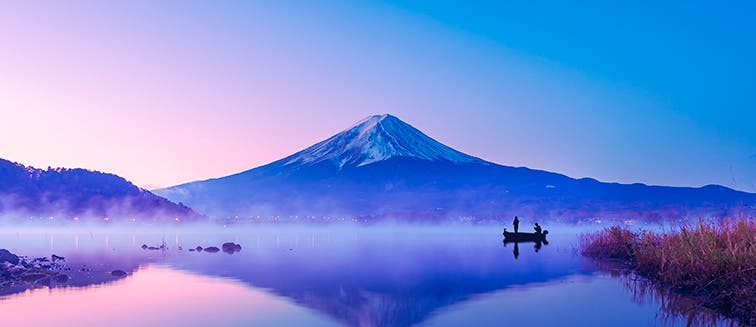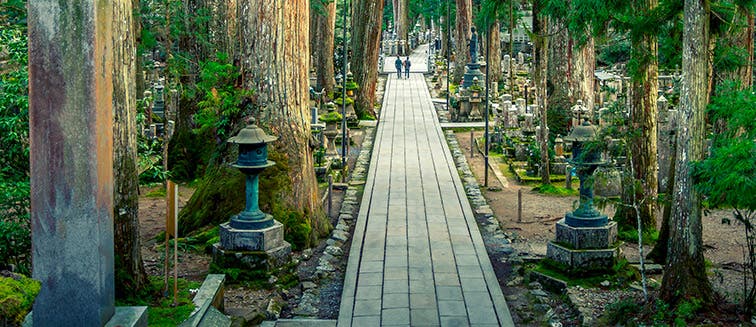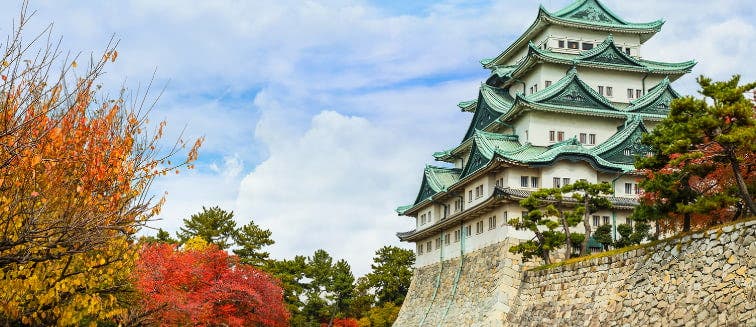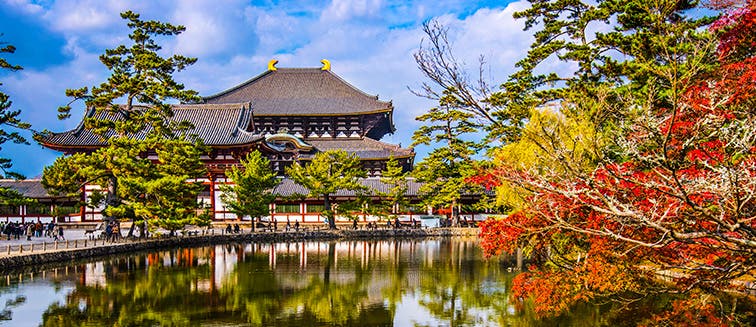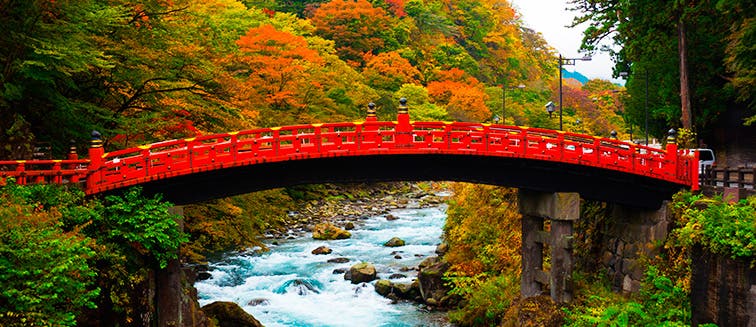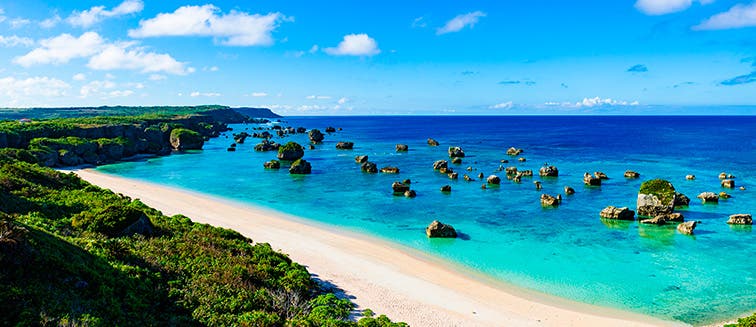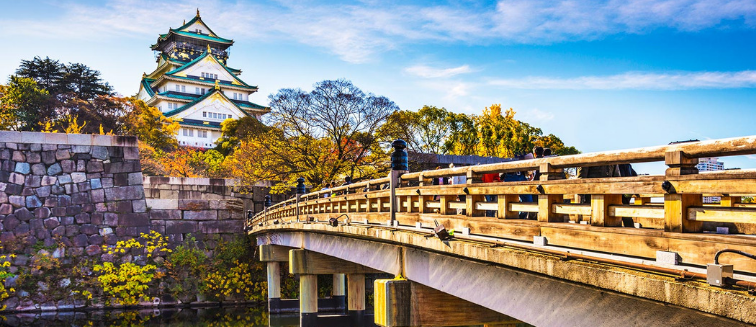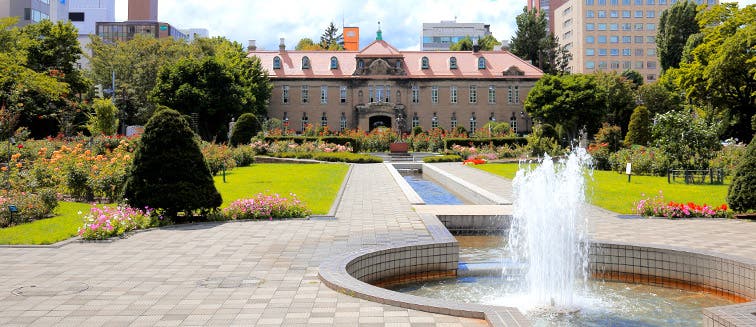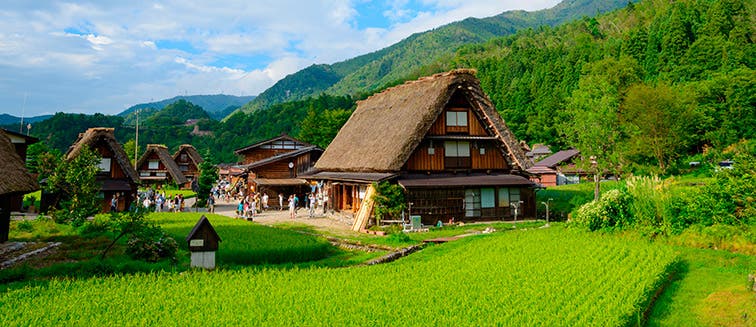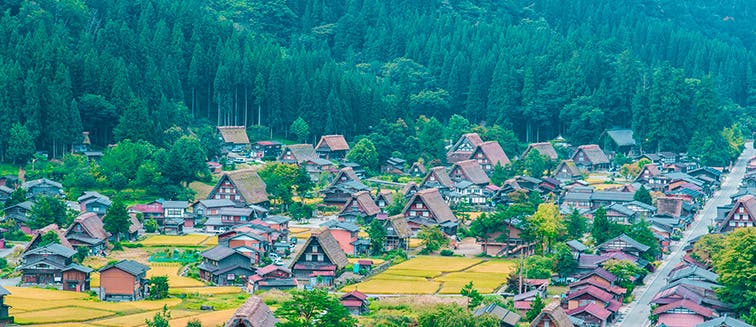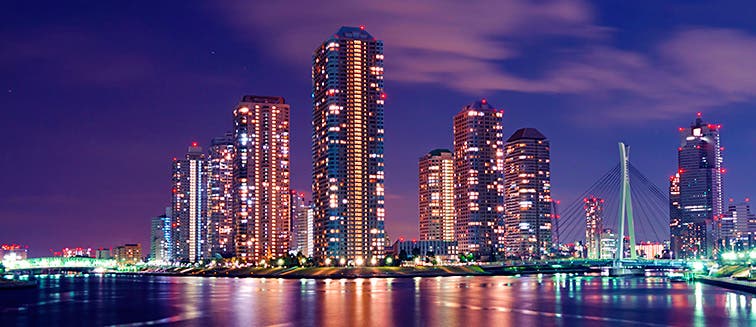A cultural powerhouse, a haven of traditions and the ‘land of the rising sun’, Japan is admired around the world for its unique exports, from manga comics to delicious sushi and its global influence continues to grow.
With a fascinating national history and unbeatable natural beauty, a package holiday to Japan is a must-do for all intrepid travellers. An east Asian country, situated in the Pacific Ocean, Japan is an island country composed of several islands of differing size, although the largest are Honshu, Kyushu, Shikoku and Hokkaido.
Japan is known for its megacities as well as it’s well preserved natural landscapes, ranging from snow-topped Mount Fuji to forests, lakes and beaches. Only in Japan do ancient traditions fuse so effortlessly with ultra-modernity. Foodies flock to the country to sample its ever-popular cuisine, as diverse as sushi and ramen.
Japan tour packages are a great idea if you want an overview of the different regions and islands and is easily achievable using the super-efficient high-speed rail system that covers all of the must-see destinations. Of course, most Japan holidays will begin in the sprawling metropolis of Tokyo, the most populous city in the world and the nation’s capital.
Other major cities include Kyoto, ancient Kanazawa and Osaka. Known for having the world’s highest life expectancy, Japan’s huge population of approximately 127 million are almost entirely homogeneous, which may go some way to explaining the preservation of the country’s unique culture, as well as making it a fascinating destination to travel to.
History of Japan
Although it’s size might be modest, Japan boasts an exciting and unique history, which is worth delving into if you are planning a trip to this island nation. It’s past is characterised by isolation from the West and close ties with China, but the unique governing structures and ways of life that evolved in Japan are unparalleled.
Before written history, Japan is thought to have had two distinct periods, the Jomon period, when settlers from the Asian mainland made their way to the islands, and the Yayoi period, when the first distinction of Japan as a country was made, under the leadership of Queen Himiko. Shinto, the country’s indigenous religion, began to take root during these early years, centred around the belief that spirits reside in the natural world.
A trip to Japan is incomplete without contemplating the tranquillity of one of the country's numerous Shinto shrines. The 6th-century saw the introduction of Buddhism to Japan, brought over by believers from modern-day Korea. Perhaps the most iconic time in Japanese history that ignites the imagination and has been immortalised in numerous movies is the Shogunate period.
This was a time when the warrior class of the Samurai held much of the power in the country. Although the Emperor was at the top of the hierarchy, the head of the military, known as the Shogun possessed the most authority as he was in direct control of the wealthy landowners, or ‘daimyo’, whose lands were protected by the Samurai.
So fearsome were these Samurai warriors, they even fought off the Mongol Empire! Walk through any major Japanese city today and you can trace the power system of the Shogunate period in the preserved Samurai districts that surround the numerous castles, which were once home to the landowners.
There were many internal conflicts between clans during this period, resulting in unification in the early 1600s, marking the beginning of the Edo period. Japan began to implement a policy of isolation in response to encroaching European influences, which had began arriving in the form of missionaries, traders and merchants.
The pivotal events of the 1868 Boshin War resulted in the dissolution of the feudal structure in Japan and the restoration of Emperor Meiji. A leader who wanted to expand his territory, Meiji thought the best way to protect his borders as to enlarge them. This resulted in wars with China and Russia throughout the 19th-century.
In more modern times, the 20th-century saw both the development of Japan as a major power in Asia and the utter devastation of the country by the US atomic bombs in World War II. Visiting Hiroshima, site of one of the bombings, is a poignant moment during any Japan holiday package.
Nature in Japan
An island country, Japan is known for its picturesque mountain ranges and cherry blossom, one of the reasons why people want to visit Japan in April. Nature is at the very heart of the national culture, so you can expect to see some pretty stunning landscapes during a trip to Japan. Away from the densely populated urban sprawls lies a land of untouched forests, hills and mountains, home to abundant and unique wildlife.
Japan stretches for 3000 kilometres from north to south, so there is a dizzying array of climates and environments, from the icy seas of the north to dense jungles on the southern island of Okinawa. Forests filled with cherry blossom and idyllic beaches can be found in between. Of course, volcanoes are another feature of the country's landscape, with phenomenal snow-capped Mount Fuji undoubtedly the iconic of Japan, but also de Japanese Alps in the island of Honshu.
Its symmetrical cone-shaped peak has been a cornerstone of Japanese art for centuries. Although nature seems to permeate almost all aspects of life in Japan, there are a few breathtaking places all nature lovers must visit. The Nachi Waterfall is one such awe-inspiring sight. The 400-foot waterfall, the tallest single drop waterfall in Japan, tumbles towards the earth beside the isolated Nachi Taisha Shrine, shrouded by trees in the quiet region of Nachikatsuura.
This perfect natural picture is a popular feature in Japanese art, idolised for its immaculate beauty; you really must see this on a tour of Japan. One of the country’s most popular natural attractions is equally as magical; Cherry Blossom Season in Kyoto! If you can plan your trip to coincide with late March/early April, you will experience the joyful charms of the blossom season, when the pink petals of the ‘sakura’ trees grace both locals and visitors with their fleeting beauty.
Culture in Japan
Shintoism, Buddhism and the Chinese influences of Taoism and Confuscism have created a rich tapestry of national culture in Japan, filled with traditions and rituals. During package holidays in Japan you’ll come across all kinds of shrines, temples and spiritual structures that confirm just how central spirituality is to everyday life. Of course, Shinto shrines are the most numerous, although you’ll find them side-by-side with Buddhist ones, as in the historic city of Nara.
Art is another foundation of Japanese culture and is seen in all parts of life, from ultra-modern architecture to horticulture, such as in the immaculately kept strolling gardens, the perfect places to escape the fast pace of the modern world. Generally, Japanese culture has a huge focus on etiquette; customs, expectations and social behaviours have been shaped over the centuries to conform with the idea that the communal and collective harmony is more important than individualism.
On a holiday to Japan, you might notice that communication is not as explicit and ‘to the point’ as it is in the west, because the Japanese rely more on social cues and body language than speech. Before setting off on your trip it is a good idea to understand some of the basic etiquettes that might be expected of you, such as never wearing outdoor shoes inside, bowing when greeting someone and that tipping is seen as disrespectful.
Everyone loves the Japanese culture that has been popularised in the West, such as sushi, movies, Manga and fashion, but a trip to Japan will open your eyes to so much more. The beauty of its landscapes, the politeness of its people and the complexity of its history make Japan a bucket-list favourite.
